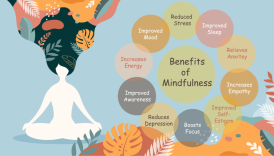Discover the Path to a Healthier and Happier You

Introduction to Health and Happiness
Importance of Well-being
When it comes to achieving a fulfilling life, health and happiness are two sides of the same coin. Well-being influences not just how individuals feel daily, but also their resilience to life’s challenges. A person who prioritizes their health tends to experience higher levels of happiness and satisfaction. For instance, take Sarah, a busy professional who decided to invest time in her health by adopting a balanced lifestyle. She found that as her physical health improved through exercise and better nutrition, her outlook on life transformed. Her increased energy levels allowed her to engage more with friends and family, reinforcing a positive feedback loop where well-being sparked happiness.
- Discover the Path to a Healthier and Happier You
- Introduction to Health and Happiness
- Importance of Well-being
- Factors Affecting Health and Happiness
- Physical Health and Wellness
- Benefits of Regular Exercise
- Nutritious Diet for a Healthier You
- Mental Health and Emotional Well-being
- Managing Stress and Anxiety
- Practicing Mindfulness for Inner Peace
- Social Connections and Relationships
- Building Supportive Relationships
- Enhancing Communication Skills
- Self-Care and Personal Growth
- Importance of Self-Compassion
- Setting Goals for Personal Development
- Improved physical health enhances mood and cognitive functions.
- Happier individuals are more likely to adopt healthy habits.
- A strong sense of well-being lowers the risk of chronic diseases.
Factors Affecting Health and Happiness
Several interconnected factors play a crucial role in shaping one’s health and happiness. Understanding these can help individuals make informed choices to enhance their lives. Here are a few key contributors:
- Physical Environment: Living in a clean, safe neighborhood with access to parks and recreational areas encourages outdoor activities, boosting physical health and spirits.
- Social Connections: Strong, supportive relationships provide emotional support that can buffer stress and foster happiness. Loneliness, on the other hand, can lead to both mental and physical health issues.
- Lifestyle Choices: Choices around diet, exercise, and substance use profoundly impact health. Regular exercise and a nutritious diet not only improve bodily health but elevate mood as well.
- Mental Resilience: The ability to cope with stress, adapt to changes, and approach problems positively is vital. Individuals who cultivate mental resilience see health and happiness as attainable goals.
Overall, recognizing the importance of well-being and the myriad factors influencing it can empower individuals to take charge of their lives. By focusing on nurturing both health and happiness, a more balanced and fulfilling life can be achieved.
Physical Health and Wellness
Benefits of Regular Exercise
Continuing on the path of enhancing our lives through health and happiness, one cannot overlook the monumental benefits of regular exercise. For many, the thought of sweating it out can seem daunting, but the advantages far outweigh any initial discomfort. Take Matt, for instance, who used to struggle with low energy levels and daily fatigue. After he committed to a regular workout routine, everything changed. Not only did he shed a few pounds, but he also felt more energetic, focused, and happier. Exercise acts as a natural mood booster, primarily due to the release of endorphins, the body’s feel-good hormones. Here are some compelling reasons to embrace a regular exercise routine:
- Improves Mood: Even a brisk walk can enhance mood and reduce feelings of sadness.
- Boosts Energy: Increased physical activity promotes better circulation and strengthens muscles, providing more vitality.
- Enhances Sleep Quality: Regular exercise helps regulate sleep patterns, leading to improved restful nights.
- Strengthens the Immune System: Moderate-intensity activities can lower the risk of infections by promoting good circulation.
Nutritious Diet for a Healthier You
Equally vital to physical health is nourishing the body through a balanced, nutritious diet. Food is not just fuel; it’s the foundation upon which our health stands. Transitioning to a healthier diet doesn’t have to be overwhelming; small, incremental changes can lead to significant benefits. Consider Jane, who began substituting her sugary snacks with fruits and nuts. Over time, she noticed a remarkable shift—not only in her physical appearance but also in her energy levels and mental clarity. A well-rounded diet rich in vitamins and minerals makes a noticeable difference. To foster a healthier you, here are key elements of a nutritious diet:
- Fruits and Vegetables: Aim for a colorful variety to ensure a broad spectrum of nutrients.
- Whole Grains: Choose whole grains like oats, brown rice, and whole wheat over refined grains.
- Lean Proteins: Incorporate sources like fish, poultry, beans, and legumes for muscle repair and growth.
- Healthy Fats: Opt for unsaturated fats from sources like avocados, nuts, and olive oil for heart health.
Focusing on both regular exercise and a nutritious diet creates a powerful synergy, promoting not just physical health, but a holistic sense of well-being that permeates daily life.
Mental Health and Emotional Well-being
Managing Stress and Anxiety
As we progress on our journey towards a healthier lifestyle, it’s essential to acknowledge the profound impact that mental health has on overall well-being. While physical health is often highlighted, the management of stress and anxiety plays a crucial role in achieving true balance. For instance, Emily found herself overwhelmed by the demands of work and family life. She often felt like she was running on a hamster wheel—constantly busy yet never satisfied. After recognizing this cycle, she sought ways to manage her stress. Through various techniques, she learned how vital it is to identify stressors and take proactive steps to alleviate them. Here are some effective strategies for managing stress and anxiety:
- Time Management: Prioritize tasks and set realistic deadlines. A well-structured day can significantly reduce anxiety.
- Physical Activity: Just as regular exercise benefits physical health, it also serves as an effective stress-relief tool. Even a quick walk can clear the mind.
- Deep Breathing Exercises: Practicing controlled breathing helps calm the nervous system. A simple five-minute session can work wonders.
- Talk It Out: Sometimes, sharing feelings with a trusted friend or counselor provides a fresh perspective and emotional release.
By addressing stressors head-on, individuals can create a more manageable and fulfilling life.
Practicing Mindfulness for Inner Peace
As one learns to navigate stress, incorporating mindfulness practices can further enhance emotional well-being. Mindfulness involves being present and fully engaged in the moment without judgment. It’s a powerful tool for finding inner peace amidst life’s chaos. Consider Alex, who was always distracted—jumping from task to task without enjoying any of them. When he discovered mindfulness meditation, he realized he had been missing out on the joy of simple moments. By dedicating just a few minutes daily to mindfulness, he became more centered and present in his everyday life. To cultivate mindfulness, try these approaches:
- Mindful Breathing: Focus on your breath for a few minutes each day. Notice the rhythm as you inhale and exhale, allowing yourself to become calm.
- Nature Walks: Spend time outdoors, engaging your senses fully. Observe the sounds, sights, and smells around you.
- Mindful Eating: Savor every bite during meals, paying attention to flavors and textures. This practice fosters appreciation and slows down the pace of eating.
By embracing mindfulness, individuals can cultivate a sense of calm and clarity, ultimately enhancing their mental health and emotional well-being. Combining stress management techniques with mindfulness creates a robust foundation for a happier, healthier life.
Social Connections and Relationships
Building Supportive Relationships
With a strong foundation in mental health and emotional well-being, the next step is to nurture our social connections and relationships. Building supportive relationships is essential for overall happiness and can significantly impact our mental health. Quality connections provide not only companionship but also a sense of belonging that is vital for emotional resilience. Take Lisa, for example. After moving to a new city, she felt isolated and lonely. Determined to build a support system, she joined a local book club. Over time, she forged lasting friendships based on shared interests. Through these relationships, Lisa discovered the power of having someone to lean on during challenging times. To cultivate supportive relationships, consider these simple practices:
- Be Accessible: Make an effort to be present for friends and family. This simple act shows that you care and are invested in their well-being.
- Actively Listen: When someone shares their thoughts, practice active listening. This means giving your full attention and engaging in the conversation. It builds trust and a deeper connection.
- Nurture Bonds: Regular check-ins and shared experiences strengthen relationships. Schedule coffee dates, game nights, or group outings to foster connections.
Enhancing Communication Skills
As important as building relationships is enhancing communication skills. Effective communication is the backbone of any healthy relationship, allowing individuals to express thoughts, feelings, and needs openly. Consider Jack, who struggled with misunderstandings in his friendships. After recognizing that miscommunication often led to conflict, he enrolled in a workshop to improve his communication skills. He learned techniques like using “I” statements to express feelings without placing blame, which transformed his interactions. Here are ways to enhance communication skills:
- Practice Empathy: Try to understand others’ perspectives and feelings. This creates a compassionate environment where open dialogue can flourish.
- Be Clear and Concise: When conveying thoughts, aim for clarity. Avoid vague statements that can lead to confusion.
- Ask Open-ended Questions: Encourage deeper conversations by asking questions that require more than just yes or no answers. This fosters connection and understanding.
- Nonverbal Cues: Pay attention to body language and facial expressions, both in yourself and others. Nonverbal communication can convey just as much as words.
By actively building supportive relationships and enhancing communication skills, individuals create a strong network that nurtures emotional well-being, ultimately leading to a happier, more fulfilling life.
Self-Care and Personal Growth
Importance of Self-Compassion
As we continue to explore the elements of well-being, we arrive at self-care and personal growth, two vital components that foster a fulfilling life. At its core, self-compassion is about treating oneself with kindness and understanding, especially during challenging times. In a world that often emphasizes perfection, many individuals is harsh on themselves when they stumble, leading to detrimental self-talk. Take Mia, for instance, who faced a setback in her career. Instead of beating herself up for not meeting her own expectations, she learned from the experience and practiced self-compassion. By reframing her thoughts and treating herself as she would treat a friend in a similar situation, she not only found peace but also gained motivation to move forward. Here’s why self-compassion is crucial:
- Reduces Anxiety and Depression: Being kind to oneself fosters emotional resilience, making it easier to cope with life’s ups and downs.
- Enhances Motivation: When individuals approach themselves with kindness, they tend to stay motivated and committed to personal goals without the fear of failure.
- Improves Relationships: Practicing self-compassion makes it easier to understand and empathize with others, leading to healthier interpersonal relationships.
Setting Goals for Personal Development
With a foundation of self-compassion, setting goals for personal development becomes a more empowering process. Goals provide direction and help individuals focus their efforts on achieving what truly matters to them. Consider David, who felt stuck in a rut. He realized that by setting specific, achievable goals, he could create a roadmap for his personal growth. By breaking down his ambitions into actionable steps, he transformed vague aspirations into tangible results. Here are effective ways to set goals for personal development:
- SMART Goals: Utilize the SMART criteria—Specific, Measurable, Achievable, Relevant, and Time-bound—to frame your goals. This clarity enhances accountability.
- Reflect Regularly: Take time to evaluate progress. Reflecting on achievements and areas for improvement helps maintain focus.
- Celebrate Small Wins: Acknowledge and celebrate milestones along the way. These moments reinforce motivation and enhance a sense of accomplishment.
- Stay Flexible: Life is unpredictable. Be open to adjusting goals when necessary; flexibility allows for adaptation without losing sight of the overall vision.
By embracing self-compassion and setting intentional goals, individuals pave the way for continuous personal growth and self-discovery, ultimately leading to a more balanced and fulfilling life. Through these practices, the journey toward self-care becomes a powerful transformative experience, enriching both personal happiness and overall well-being.




